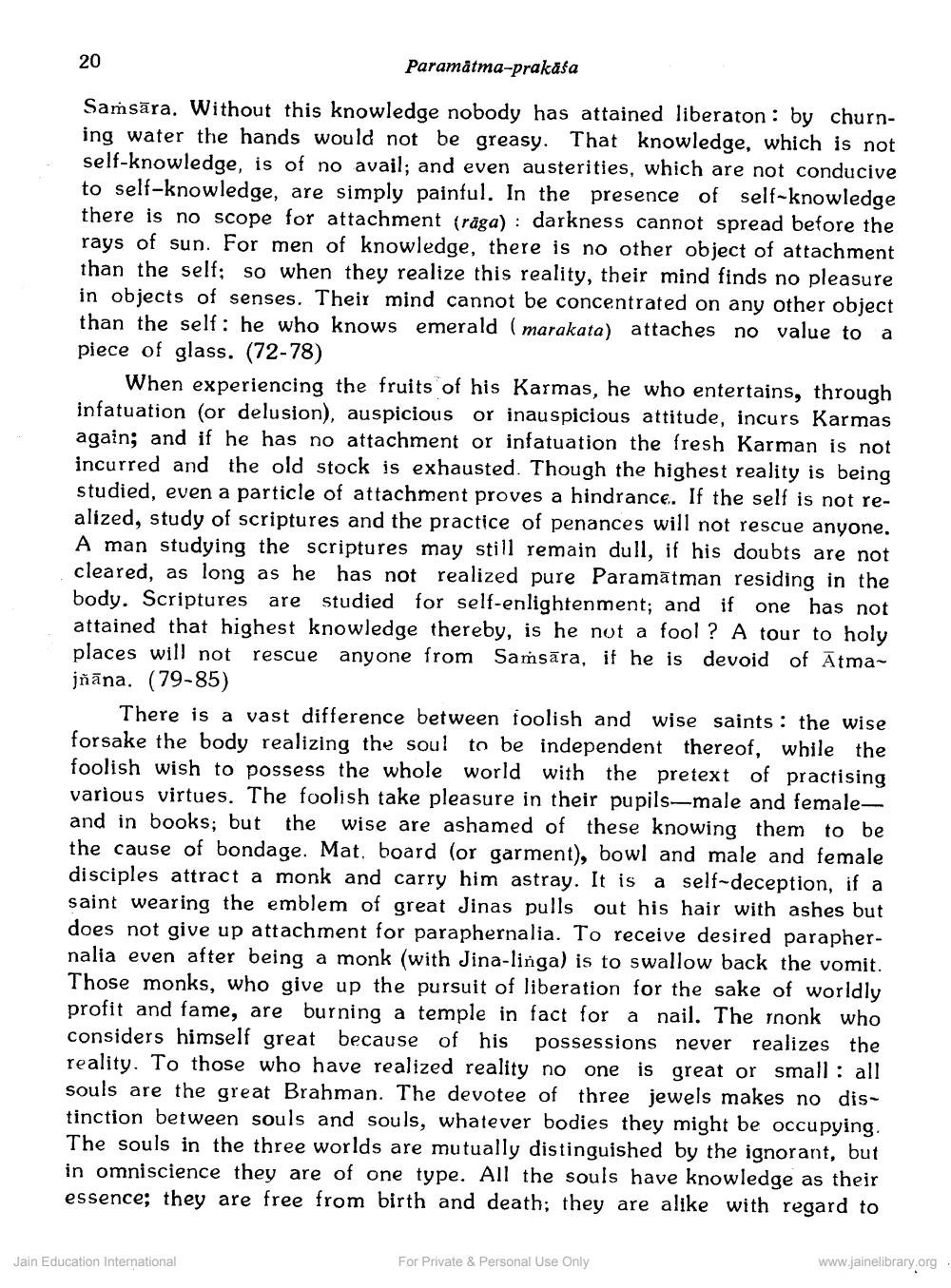________________
20
Paramātma-prakāša
Saṁsāra. Without this knowledge nobody has attained liberaton: by churning water the hands would not be greasy. That knowledge, which is not self-knowledge, is of no avail; and even austerities, which are not conducive to self-knowledge, are simply painful. In the presence of self-knowledge there is no scope for attachment (râga) : darkness cannot spread before the rays of sun. For men of knowledge, there is no other object of attachment than the self; so when they realize this reality, their mind finds no pleasure in objects of senses. Their mind cannot be concentrated on any other object than the self: he who knows emerald ( marakata) attaches no value to a piece of glass. (72-78)
When experiencing the fruits of his Karmas, he who entertains, through infatuation (or delusion), auspicious or inauspicious attitude, incurs Karmas again; and if he has no attachment or infatuation the fresh Karman is not incurred and the old stock is exhausted. Though the highest reality is being studied, even a particle of attachment proves a hindrance. If the self is not realized, study of scriptures and the practice of penances will not rescue anyone. A man studying the scriptures may still remain dull, if his doubts are not cleared, as long as he has not realized pure Paramātman residing in the body. Scriptures are studied for self-enlightenment; and if one has not attained that highest knowledge thereby, is he not a fool ? A tour to holy places will not rescue anyone from Saṁsāra, if he is devoid of Atmajñāna. (79-85)
There is a vast difference between foolish and wise saints: the wise forsake the body realizing the soul to be independent thereof, while the foolish wish to possess the whole world with the pretext of practising various virtues. The foolish take pleasure in their pupils—male and female and in books; but the wise are ashamed of these knowing them to be the cause of bondage. Mat, board (or garment), bowl and male and female disciples attract a monk and carry him astray. It is a self-deception, if a saint wearing the emblem of great Jinas pulls out his hair with ashes but does not give up attachment for paraphernalia. To receive desired paraphernalia even after being a monk (with Jina-linga) is to swallow back the vomit. Those monks, who give up the pursuit of liberation for the sake of worldly profit and fame, are burning a temple in fact for a nail. The rnonk who considers himself great because of his possessions never realizes the reality. To those who have realized reality no one is great or small : all souls are the great Brahman. The devotee of three jewels makes no distinction between souls and souls, whatever bodies they might be occupying. The souls in the three worlds are mutually distinguished by the ignorant, but in omniscience they are of one type. All the souls have knowledge as their essence; they are free from birth and death; they are alike with regard to
For Private & Personal Use Only
Jain Education International
www.jainelibrary.org




